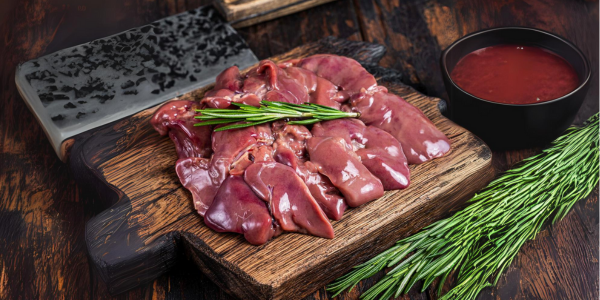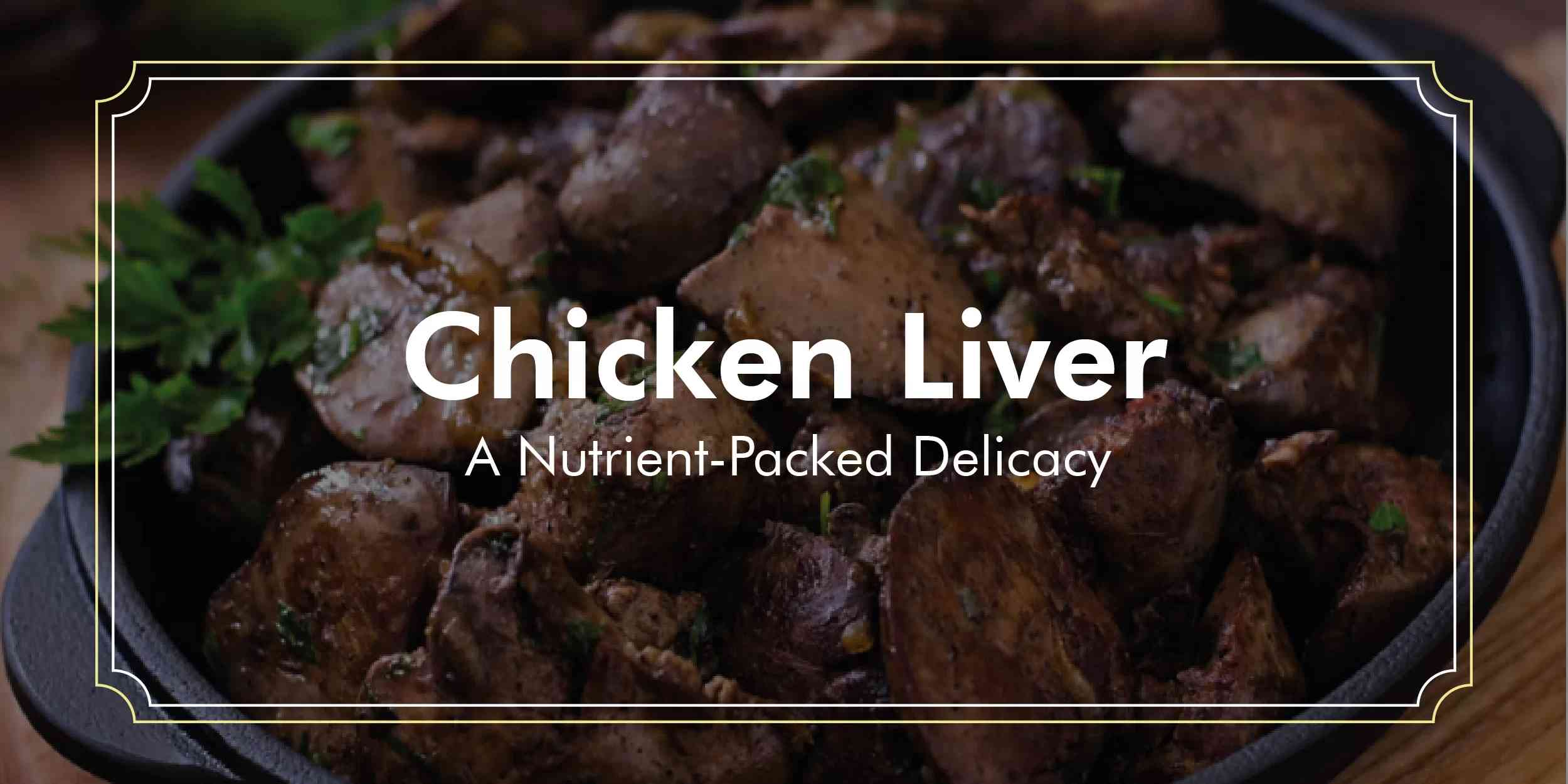Chicken Liver: Introduction
Chicken liver is often an overlooked ingredient, yet it is packed with a plethora of nutrients that can benefit your health immensely. While it might not be the first thing you think of when planning a meal, including organ meats like liver in your diet can be a game-changer. In this article, we’ll dive deep into the nutritional benefits, health perks, cooking methods, and more about this humble but powerful food.
Nutritional Benefits of Chicken Liver
High in Vitamins and Minerals
Chicken liver is a nutritional powerhouse. It’s rich in vitamins and minerals that are essential for maintaining good health.
Vitamin A
One of the standout nutrients in chicken liver is Vitamin A. This vitamin is crucial for maintaining healthy vision, supporting immune function, and ensuring the proper functioning of the heart, lungs, and kidneys.
B Vitamins
Chicken liver is also loaded with B vitamins, including B12, which is vital for red blood cell formation and neurological function. Other B vitamins present include B6, folate, riboflavin, and niacin, all of which play important roles in energy production and metabolic processes.
Iron and Zinc
Iron is another nutrient found in abundance in chicken liver. It helps in the production of hemoglobin, which carries oxygen in the blood. Zinc, also present in chicken liver, is essential for immune function, wound healing, and DNA synthesis.
Low in Calories, High in Protein
Despite being rich in nutrients, chicken liver is relatively low in calories. It is also high in protein, making it an excellent choice for those looking to build muscle or maintain a healthy weight.
Health Benefits of Chicken Liver
Boosts Immunity
The high levels of vitamins A and C, along with zinc, help strengthen the immune system. Regular consumption of chicken liver can help ward off illnesses and infections.
Supports Vision Health
Thanks to its rich vitamin A content, chicken liver supports good vision and helps prevent conditions like night blindness and age-related macular degeneration.
Enhances Brain Function
The B vitamins, particularly B12, are crucial for brain health. They help in the production of neurotransmitters and improve cognitive function, reducing the risk of cognitive decline.
Aids in Detoxification
Chicken liver contains nutrients that support the liver’s detoxification processes. It helps in the breakdown and removal of toxins from the body, ensuring that your internal systems function smoothly.
How to Select and Store
Choosing Fresh Chicken Liver
When selecting chicken liver, look for ones that are firm and have a deep reddish-brown color. Avoid any that appear pale, have a greenish hue, or emit a strong odor.
Proper Storage Techniques
Store chicken liver in the coldest part of your refrigerator and use it within a couple of days of purchase. If you need to store it for longer, freezing is an option. Wrap the liver tightly in plastic wrap and place it in an airtight container before freezing.
Understanding Labels and Certifications
Look for labels indicating that the liver of chicken is organic or free-range, as these are often higher in quality and have fewer chemicals or antibiotics.
Preparing for Cooking

Cleaning and Trimming
Start by rinsing the liver under cold water and patting it dry with paper towels. Trim off any visible fat, sinew, or greenish parts (gallbladder remnants) as these can impart a bitter taste.
Marinating Tips
Marinating the liver of chicken can enhance its flavor and tenderness. Use acidic ingredients like lemon juice or vinegar, combined with herbs and spices, to marinate for at least 30 minutes before cooking.
Popular Seasonings and Ingredients
Common seasonings for this food include garlic, onions, pepper, and herbs like thyme and rosemary. These enhance the liver’s natural flavor without overpowering it.
Cooking Methods
Sautéing
Sautéing is a quick and easy method. Heat some oil or butter in a pan, add the liver, and cook on medium-high heat for about 5-7 minutes, until fully cooked but still tender.
Grilling
Grilling it can impart a smoky flavor. Thread the liver onto skewers, season, and grill on medium heat for about 10 minutes, turning occasionally.
Baking
Baking is a less common but effective method. Preheat your oven to 350°F (175°C), place the liver on a baking sheet, and bake for about 20 minutes until cooked through.
Making Chicken Liver Pâté
To make chicken liver pâté, sauté the liver with onions and garlic, then blend it with butter, cream, and seasonings until smooth. Chill before serving with crackers or toast.
Popular Recipes
Classic Chicken Liver Pâté
This creamy spread is a favorite appetizer. It’s easy to make and a hit at parties.
Sautéed Chicken Liver with Onions
A simple yet delicious dish. The onions add sweetness that complements the rich liver.
Grilled Chicken Liver Skewers
Perfect for BBQs, these skewers are flavorful and easy to prepare.
Chicken Liver in Rich Tomato Sauce
A hearty main dish where the liver is cooked in a rich, flavorful tomato sauce. Serve it over rice or pasta for a complete meal.
Chicken Liver in Different Cuisines
European Cuisine
In Europe, chicken liver is used in various traditional dishes, from pâtés in France to liver dumplings in Germany.
Asian Cuisine
In Asia, chicken liver is often stir-fried or used in noodle dishes, imparting a unique flavor and texture.
Middle Eastern Cuisine
Middle Eastern recipes frequently feature chicken liver in dishes like liver and onions, often seasoned with cumin and coriander.
Addressing Common Concerns About Chicken Liver
Concerns About Cholesterol
While the liver is high in cholesterol, it is also packed with nutrients. Consumed in moderation, it can be part of a healthy diet.
Addressing Taste and Texture
The taste and texture of chicken liver can be off-putting to some. Marinating and using the right cooking methods can make it more palatable.
Safety and Hygiene
Ensure it is cooked thoroughly to avoid the risk of foodborne illnesses. Always handle with clean utensils and surfaces.
Chicken Liver for Different Dietary Needs
Suitable for Low-Carb and Keto Diets
Chicken liver is naturally low in carbs, making it a great addition to low-carb and keto diets.
Incorporating into the Paleo Diet
As an organ meat, chicken liver fits well within the paleo diet, providing essential nutrients that are often lacking.
Options for Gluten-Free Diets
Chicken liver can be easily incorporated into gluten-free diets, either as a main dish or an ingredient in other gluten-free recipes.
Sustainability and Ethical Considerations
Sourcing Ethical Chicken Liver
Choose liver from chickens raised in humane conditions. Look for certifications like free-range or organic.
Reducing Food Waste
Using chicken liver is a great way to reduce food waste, as it utilizes parts of the animal that might otherwise be discarded.
Chicken Liver for Pets
Nutritional Benefits for Pets
It is also beneficial for pets, providing them with essential vitamins and minerals.
Safe Preparation for Pets
Ensure the liver is cooked thoroughly and avoid using seasonings that could be harmful to pets.
Incorporating into Pet Diets
It can be mixed with regular pet food or used as a treat, but should be given in moderation.
Chicken Liver: A Nutrient-Dense Delight at Al Farah Restaurant
Chicken liver is a versatile, nutrient-dense food that can be prepared in various ways to suit different tastes and dietary needs. Whether you’re looking to boost your vitamin intake, add a new protein source to your diet, or explore new culinary horizons, chicken liver is an excellent choice. At Al Farah Restaurant, we pride ourselves on crafting exquisite dishes that highlight the richness and flavor of chicken liver. Our chefs expertly prepare each dish, ensuring a perfect balance of tenderness and robust taste. From classic sautéed chicken liver with onions to innovative grilled skewers and creamy pâtés, every bite at Al Farah Restaurant promises a delightful culinary experience. Visit us today and discover the myriad benefits and flavors that chicken liver has to offer. Try Restaurant Networks to sell & buy used restaurant equipment.










